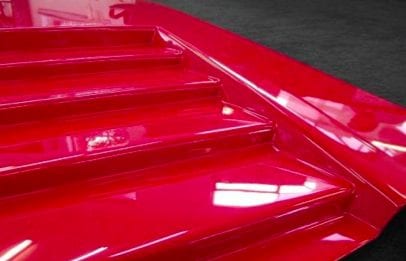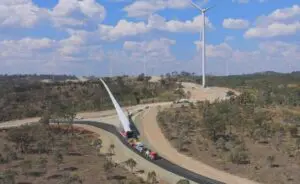The largest independent aerospace-grade composite manufacturer in Australia has unveiled its newest technology that it says is set to “revolutionise” the Australian and international automotive industries.
Quickstep Holdings has announced plans to fast track the commercialisation of its patented Resin Spray Transfer (RST) technology, which has been developed in Australia and partly funded by the Federal Government’s Climate Ready program.
The new automated process allows lightweight carbon fibre parts to be produced in minutes – at a comparatively low cost. And it can deliver lightweight car bodies that can help car manufacturers meet emissions reduction and fuel efficiency targets.
Quickstep managing director Philippe Odouard says the new technology comes at a time where business, especially in the automotive industry, are focusing on efficiency in production; lowering costs, reducing capital-intensive processes and complying with new cleaner energy requirements.
The RST technology has the potential to manufacture car panels with the strength of steel, but at half the weight. A lighter car panel not only means the consumption of less energy in production but also in the operation of cars.
“In the emerging emission- legislated world, every leading manufacturer is aiming to develop cars that are lighter, more affordable and consume less fuel. This can be achieved using Quickstep’s Resin Spray Transfer technology,” he said in a statement.
The new technology means that car parts also last longer, reducing maintenance costs. He says most major auto manufacturers exploring carbon fibre composite use.
In recent times, focus in the auto industry has been on fuel efficiency. Quickstep highlights that two thirds of fuel needed to move cars is determined by car weight, turning efficiency debates from fuel to weight.
Although newer cars produce significantly less carbon dioxide (CO2), road transportation still accounts for approximately 14% of global emissions and has continued to rise.
There has been concerted push for carbon emission reductions for original equipment manufactures (OEM’s) through legislation in Europe and the US.
The Obama administration has increased legislated fuel economy standards to 54.5 miles per gallon (23 km/litre) for all cars and light-duty trucks in the US by 2025. This presents a standard that is almost double what is currently required.
The EU mandates require passenger vehicles to cap carbon dioxide emission at 130g/km from 2012 onwards – limiting CO2 levels per km.
Their pioneer plant, based in Bankstown, Sydney, is currently pursuing licensing discussions and production testing with several automotive manufacturers in Germany, including Audi.
The Quickstep technology, partly funded by a $2.5 million grant from the Federal Government’s Climate Ready Program, paves the way to mass adoption of future hybrid, electric and conventional cars with highly efficient components all the while reducing fuel consumption.










